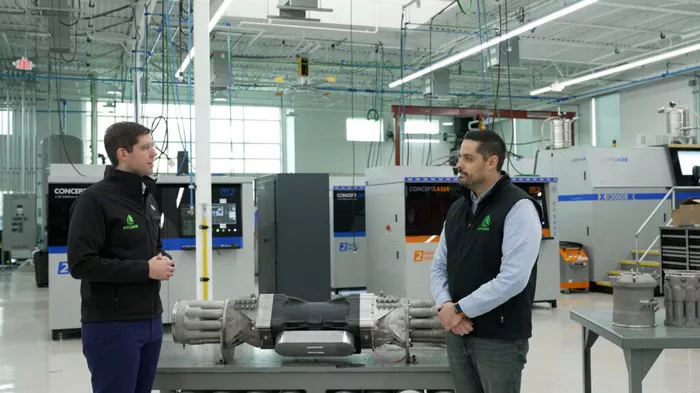Hyliion Holdings Corp., a leader in innovative powertrain solutions and modular power generation, has released its 2024 10-K report, detailing its financial performance, business operations, and strategic direction as it moves forward with its KARNO generator technology.
Financial Performance
Hyliion reported total revenues of $1.5 million, marking a 124.6% increase compared to the previous year. This surge was driven by the recognition of revenue from research and development (R&D) services, particularly from the company’s role as both a prime and subcontractor for the U.S. government. The company achieved a modest gross profit of $0.1 million, reversing a $1.0 million loss from the prior year due to improved cost management and revenue recognition strategies. Despite these gains, Hyliion posted a net loss of $52.0 million, although this represented a 57.9% improvement over the previous year’s losses.
The company’s loss from operations reduced by 53.2%, reflecting a decline in operating expenses following the decision to wind down its powertrain business. The net loss per share also improved, dropping from $(0.68) to $(0.30).
Business Developments and Strategic Focus
Hyliion’s flagship development, the KARNO generator, is a fuel-agnostic, modular power generating solution designed to improve efficiency, emissions, and lifecycle costs compared to traditional generators. The company’s strategic shift towards this technology has been bolstered by key contracts and investments.
In September 2024, Hyliion was awarded a $16 million contract by the U.S. Navy’s Office of Naval Research to assess the feasibility of the KARNO generator for use in Navy vessels and stationary applications. The company also secured a $6 million grant from the U.S. Department of Energy’s Methane Emissions Reduction Program in December 2024 to install up to 2 megawatts of KARNO generators in collaboration with oil and gas partners, showcasing the generator’s ability to operate on wellhead gas.
Following the wind-down of its powertrain operations, Hyliion has refocused its efforts on the KARNO generator as a standalone product, with plans for a commercial launch of the 200 kW system in 2025. A larger 2 MW version is scheduled for launch in 2026, aimed at industries such as data centers and industrial power generation.
Additive Manufacturing and R&D Investments
Hyliion has significantly invested in R&D, particularly in additive manufacturing, to produce key components for the KARNO generator. The company plans to expand its printing capacity with additional machines set for delivery in 2025. Since acquiring the KARNO technology from GE in 2022, Hyliion has dedicated considerable resources to advance its commercialization efforts.
Capital and Operational Efficiency
With a strong liquidity position, Hyliion reported $9.2 million in cash and cash equivalents, alongside $210.5 million in total investments. The company has been cautious with capital management, implementing a $20 million share repurchase program, with $14 million repurchased in 2024. Despite the strategic investments, the company anticipates continued net losses into 2025 as it focuses on developing the KARNO generator.
Challenges and Risks
Hyliion faces several challenges in the development and commercialization of the KARNO generator. While it aims to begin commercial deliveries in 2025, any delays in design, production, or market acceptance could significantly impact its operations. The company remains heavily reliant on government contracts, with its partnership with the Navy currently serving as the largest source of revenue.
Additionally, Hyliion is navigating the complexities of large-scale manufacturing and supply chain management, with reliance on limited-source suppliers posing operational risks. The evolving regulatory landscape, including environmental and data privacy laws, could also impose additional costs and uncertainty for the company.
Looking Ahead
Hyliion expects the commercialization of its 2 MW KARNO generator system in 2026 to drive significant growth. The company is focusing on expanding its sales, distribution, and service networks to capitalize on market opportunities in sectors such as data centers, biogas, oil and gas, and backup power systems.
With continued innovation and strategic investments, Hyliion is positioning itself to become a key player in the energy sector, though it must navigate significant development and market risks in the coming years.
Related topics:

